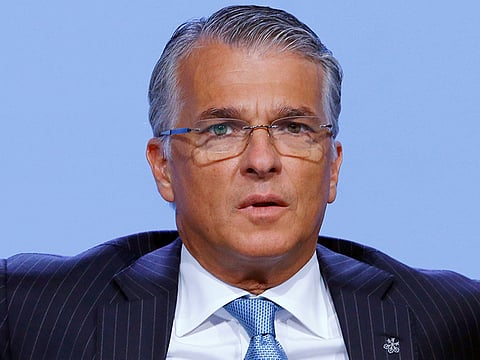UBS CEO wants clarity at last on banking rules
Bankers don’t expect progress until at least the autumn

BASEL
UBS Group AG Chief Executive Sergio Ermotti on Thursday urged global regulators to clarify new banking rules, complaining they were still being debated almost a decade on from the outbreak of the financial crisis.
“It is right that banks are expected to think and act long term. But this is almost impossible without stable and finalised regulations,” Ermotti said in a speech at UBS’s annual general meeting.
“Almost ten years on from the financial crisis, and there is still no clarity on this issue. And it helps neither us nor the economy at large to keep banks in the penalty box.” He was joining a chorus of calls from European bankers to hit the pause button on new rules from watchdogs.
Since the 2007-09 financial crisis — which caused a global recession and led to government bailouts for many big banks, including UBS — regulators have been working to toughen capital requirements and tackle the problem of banks being too big to fail.
Banks have dubbed the remaining capital rules “Basel IV”, meaning a step change in capital on Basel III, which aims to iron out big differences in the way banks assess risks from loans, a key calculation that determines the size of their capital buffers.
However, the completion of Basel IV has been on hold pending changes in US regulatory officials by the new administration of President Donald Trump. Bankers say they don’t expect progress until at least the second half of the year.
Since 2007 UBS, Switzerland’s biggest bank and world’s largest private bank by assets, has cut the size of its balance sheet by more than half, from 2.5 trillion Swiss francs ($2.52 trillion) to 935 billion, Ermotti said.
Lower regulatory and legal costs could allow UBS to increase payouts to shareholders, Ermotti said.
Switzerland’s biggest bank has incurred 3.9 billion Swiss francs in costs since 2012 to cover legal fees and new regulations.
“That means that if legal and regulatory costs start to fall, we will be in a position to return even more capital to you, our shareholders, whether in the form of dividends or share buy-backs,” Ermotti said.



